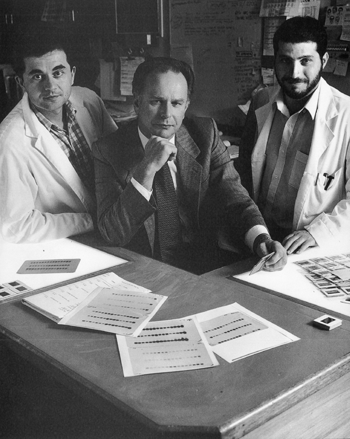Studies in blood vessel biology have resulted in new treatments for pulmonary hypertension and safer therapeutic strategies targeting angiotensin. This work is paving the way for improved treatments of accelerated atherosclerosis associated with autoimmune disorders such as rheumatoid arthritis.
Changes in the structure (‘remodelling’) of blood vessels — especially arteries — impact greatly on quality of life and life-span. Basic vascular biology studies on blood vessels led by Institute scientists have provided novel insights into factors that initiate abnormal arterial remodelling.
Endothelin – Baker Institute scientists were the first to demonstrate that a vasoconstrictor called endothelin-1 is also a stimulator of vascular smooth muscle cell proliferation (Bobik, A et al. Am J Physiol 1990). The subsequent follow-up studies ultimately resulted in development of endothelin-1 antagonists which are now used clinically in the treatment of pulmonary arterial hypertension.
Angiotensin II – The Institute’s studies on angiotensin II led to the discovery that this compound is essential for development of the blood vessels (Friberg, P et al. Kidney International 1994). The studies led to world-wide recommendations that these drugs should be avoided in pregnancy.
Inflammatory arthritis – Atherosclerosis studies by Institute scientists resulted in the discovery that types of white blood cells were major contributors to atherosclerosis (Kyaw, T et al. J Immunol 2010). This concept-changing discovery has implications for preventing accelerated atherosclerosis associated with autoimmune diseases such as rheumatoid arthritis, where B cell targeted antibody therapy can be used to treat active disease.

John Saltis (L) and Alex Agrotis (R) with Alex Bobik (M) in the Cell Biology Laboratory.

